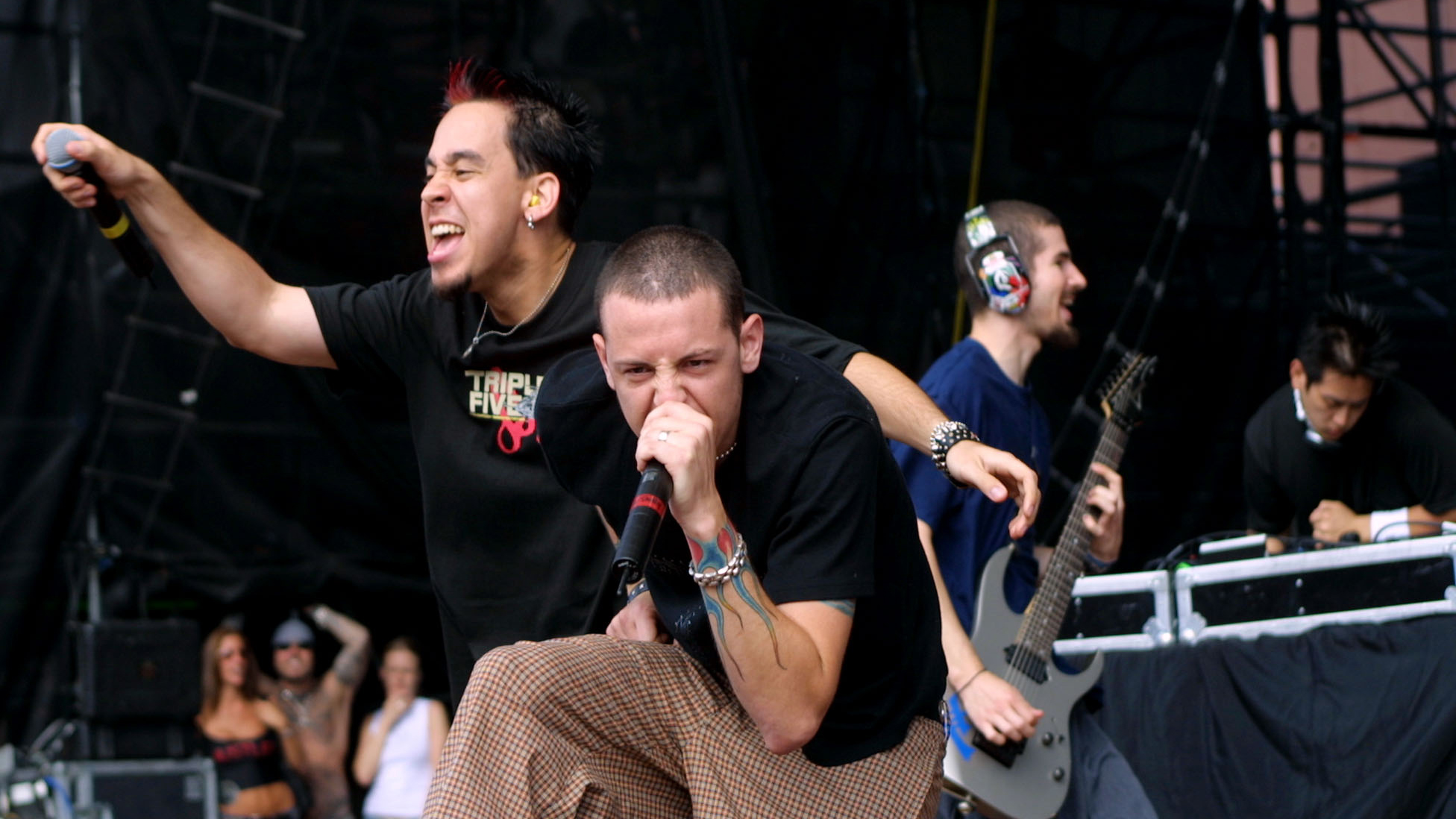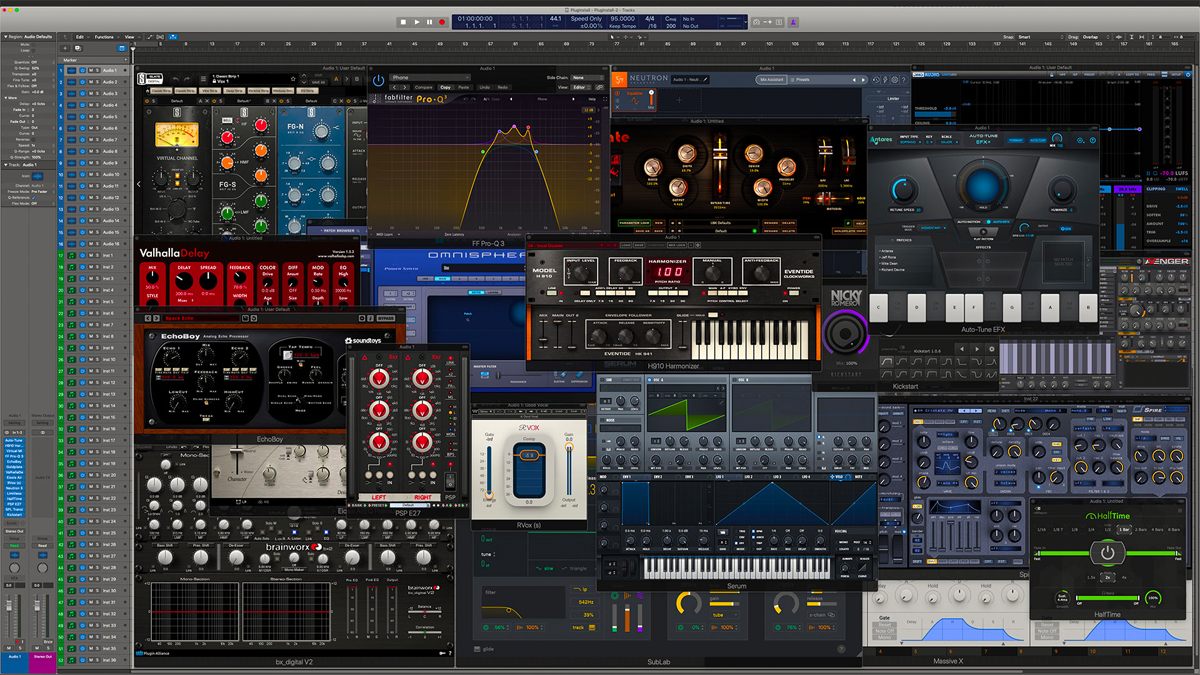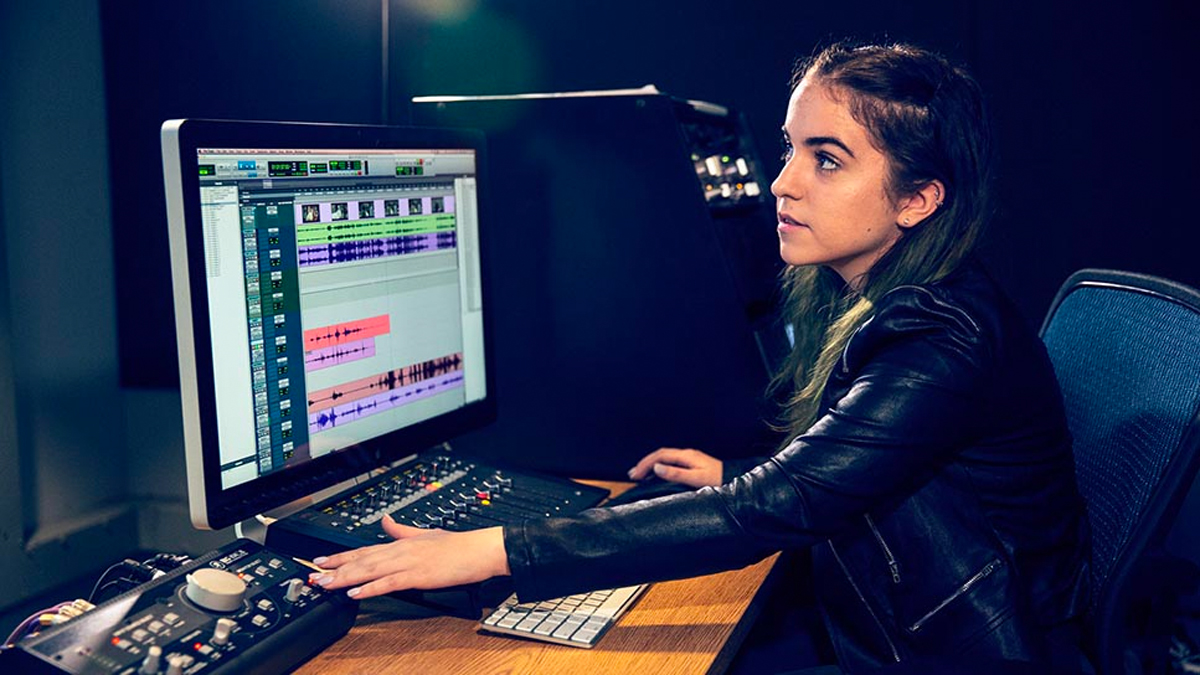Interview: Linkin Park's Mike Shinoda – "Chester's voice was insane"
The musician and producer remembers the vocal gifts of his late bandmate and goes in-depth on the gear behind his pioneering new collaborative Twitch album
In a wide ranging video interview with MusicRadar above, Mike Shinoda reflects on the early days of Linkin Park with Chester Bennington and also goes in-depth on the gear he used to record his pioneering new collaborative album, Dropped Frames Vol.1.
Shinoda hosts a vibrant community of thousands on the Twitch platform and began creating music live in collaboration with his fans from around the world during quarantine. Shinoda's commitment to a daily livestream and making music four days a week has resulted in Dropped Frames Vol.1.
But as MusicRadar's Amit Sharma talked to Shinoda via Zoom in the musician's home studio about the process and gear he used to make the project reality, there was also time to look back too on one of the greatest collaborators of his life; late Linkin Park vocalist Chester Bennington.

"He was so remarkable in that way," said Shinoda, reflecting on Bennington's vocal range. "We didn't even know. I feel like we didn't even know the extent, meaning he and I, when we met and started writing together and experimenting with how he would fit into the band.
"One minute he's Dave Gahan from Depeche Mode and the next minute he's Layne Staley"
"Basically he would come in my house and it would either be just me and Chester or me, Chester and Brad. We would work on new material. It was '99 maybe, or '98 and we'd work on new material and see what directions we could push his voice. At the time he was still developing his own identity as a singer.
"And I say that because when he would sing a new thing, he was very good at imitating somebody else's style and he would often fall into his favourite singer's style, even to the extent that he would accidentally form words with an accent.
So one minute he's Dave Gahan from Depeche Mode and the next minute he's Layne Staley and I'm like, "You just saying an 'r' and then you sang an 'arrr" and you're not that you're not even from the same country right now. We'd laugh and we'd joke about it.
Want all the hottest music and gear news, reviews, deals, features and more, direct to your inbox? Sign up here.
"There's one part of it that's like just your natural instrument you've been given – he just had a had a wonderful instrument and he spent so much time learning it and getting in tune with it and unlocking it."
"There's a lot of great singers who hear a song like [Linkin Park's Crawling] and sing along in their car or their shower and it sounds so great," Shinoda continued later.
"And then they sing it without the recording and they sing it by themselves and they go, 'Oh my God, that doesn't sound anything like it did in my head', and I've seen that I've seen that happen in it's very… I mean Chester's voice was insane. There was nothing else like it."
The musician and producer also reflected on his journey as a vocalist in his own right.
"One of the fans said to me the other day on my livestream, they asked for tips on how to get better as a singer just in general they said, "You know, you Mike, you in the beginning didn't sing it all. We sometimes forget you didn't, then all of a sudden you were singing, then the next record you sounded better… how did you get better? What kind of things were you doing?"
"My voice has this weird, almost nasal timbre… it's almost like a Phil Collins or like a Peter Gabriel, although they're way better!"
"Obviously practicing is a big part of it, but also if you think of your voice as like a second character and get to know it. Who are you? What am I working with here? What is my range? Where are the places I can push it and are there any sounds my voice makes that I hear in music I like, or I don't hear and I should try.
"My voice has this weird, almost nasal timbre… it's almost like a Phil Collins or like a Peter Gabriel, although they're way better! They're incredible singers, but when I sing some lines and I put certain effects, not to copy that but I just to hear it. I go, 'oh my God, okay, so that's a thing my voice does that I didn't know or that somebody else's voice doesn't do."
"My two primary DAWS are Ableton and Pro Tools"
Shinoda also got specific about the plugins and gear he used for Dropped Frames Vol.1 and prefers for his Twitch sessions.
"My two primary DAWs are Ableton and Pro Tools. If I'm recording live instruments I go to Pro Tools because it's it's better for that – multi-tracking drums, recording and comping vocals.
"For the stuff on the stream I primarily use Ableton because it was made to be more of a live application, as I understand it. It definitely works well that way and you can keep the music playing while you do just about anything else in the software.

The finest synth, drum machine, sampler and effect plugins you can buy right now
"So adding new tracks, adding new plugins, changing plugins, editing, saving… everything you do, the music keeps playing. When I was thinking about how to stream I chose Ableton very easily.
I use the Native Instruments suite a ton, Machine is my primary beat making software, and all the expansion packs that they sell. In terms of other gear, other software, I like the Valhalla stuff a lot, I like the UA stuff a lot.
I find myself going through some stuff by Slate Digital and Soundtoys quite a bit and then outside the box, it's a mix of SSL and Neve. I find myself using the Teenage Engineering OP-1 a lot actually"
And let's not forget, Mike Shinoda is also a guitarist!

What’s so great about Pro Tools? A beginner’s guide to the industry-standard DAW
"It's mostly Fender Strat, Tele and P-Bass. Occasionally PRS. I actually have a Fender baritone Tele that I love a lot. I got that like last year and I run those usually through a couple of pedalboards and a Fractal [Axe-FX unit] or if feeling like I really need a specific guitar tone, my amps."
Check out the full chat above where Mike Shinoda goes deeper into his creative process and diverse influences.
To hear Dropped Frames Vol. 1 check out mshinoda.com/DroppedFrames
MusicRadar is the number one website for music-makers of all kinds, be they guitarists, drummers, keyboard players, DJs or producers...
- GEAR: We help musicians find the best gear with top-ranking gear round-ups and high-quality, authoritative reviews by a wide team of highly experienced experts.
- TIPS: We also provide tuition, from bite-sized tips to advanced work-outs and guidance from recognised musicians and stars.
- STARS: We talk to musicians and stars about their creative processes, and the nuts and bolts of their gear and technique. We give fans an insight into the craft of music-making that no other music website can.
